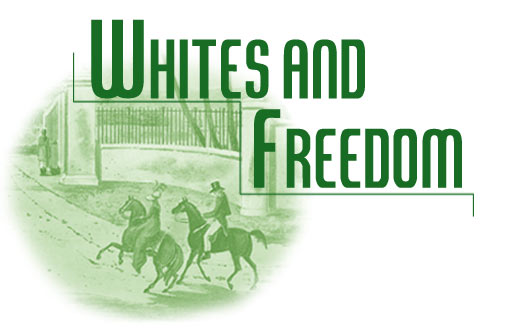
The word emancipation
arouses powerful images within the mind of the critical reader. Frequently,
people first think of the slaves of the southern United States, whose struggle has become a timeless
theme. While the United States’ involvement in the chattel slavery
system was of great importance in many historical respects, it certainly
is equaled by the participation and practices of the colonial Caribbean Islands to the south. Forced into centuries of labor on those islands,
the enslaved Africans grew fortunes of money for the European empires.
Emancipation
in the western world involved many more elements than are commonly
assumed. It was an economic, social, racial, and spiritual upheaval
with massive global and cultural implications. Emancipation not only
involved correcting the major moral transgressions of the contemporary
period, but also a restructuring of the lives of the millions of people
involved. In America, Europe, and the Caribbean, a few whites rallied for the rights
of blacks.  People
of other cultures and religions could relate as they pressed for their
own freedom within the white controlled lands. The broader views of
the situation primarily portray the blacks as the beneficiaries of
the new freedoms of the nineteenth century, but history shows that
they were not alone. People of other races such as the Jews, mixed
people called mulattos, and other ethnic and religious minorities
shared in the miseries and victories of slavery. People
of other cultures and religions could relate as they pressed for their
own freedom within the white controlled lands. The broader views of
the situation primarily portray the blacks as the beneficiaries of
the new freedoms of the nineteenth century, but history shows that
they were not alone. People of other races such as the Jews, mixed
people called mulattos, and other ethnic and religious minorities
shared in the miseries and victories of slavery.
With
the arrival of freedom to the Caribbean, beginning in Haiti in 1791, change became an inevitable
destiny of all the colonies. Change meant that whites would no longer
dominate every aspect of their societies. For some, especially those
who had profited from exploitation such as planters, this posed a
threat. They turned their efforts to controlling the African populations
through patronage systems and tough discriminatory laws. To others
such as the Methodist and Baptist missionaries, who contributed in
the emancipation effort, this presented an opportunity to assimilate
and share. The new easing of the blacks’ workload allowed them to
develop culturally and socially in a much more unrestricted manner.
Understanding
the true scope of slavery is essential to the critical analysis of
history. The reactions of whites in the emancipation
era is important to understanding the effects, which still
hamper our societies and institutions today. True emancipation lies
in the educating of unknowing minds, and analyzing the great emancipations
of the nineteenth century prepares us to be more understanding and
worldly people.
|

